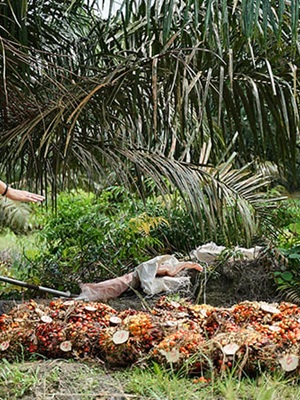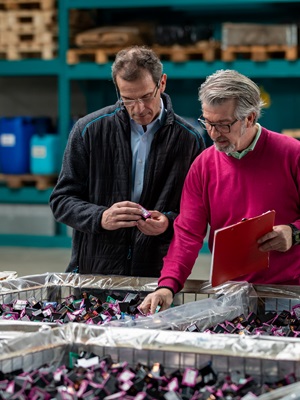The voices of youths are often seen as idealistic. But it is these voices that ignite shifts in mindsets and inspire change. Youths are often concerned that their actions amount to nothing, and this mentality has limited their potential to enact changes in their communities. In Singapore, the proven success formula of graduating with a degree, finding a well-paying job, getting married and starting a family has also caused many to be disinterested.
There are also youths who are sitting on the fence, not knowing how and where to start their involvement in the sustainability space. This is made even more difficult especially in Singapore, where the sustainability community is close-knit, on top of a minority of youths actively expressing resistance and cynicism. With the high barrier of entry into sustainability and the perceived “exclusivity” of the local community, the green space might be seen as unwelcoming to new entrants, which is concerning, especially when the climate crisis is an existential one that affects everyone.
Addressing concerns and fears
To get more people onboard as a collective whole to fight climate change, it is essential to appeal to people who have their respective concerns and those who are keen to act but are afraid to do so, whether it is due to resource constraints, the absence of a supportive community, or just a lack of confidence to lead an entirely new initiative.
As the next generation of Singaporeans enter the workforce, young people must rethink and redefine their role in Singapore and the broader global community.
A few exemplary names come to mind when we speak of global and regional youth climate leaders: Swedish youth activist Greta Thunberg, founder of the Fridays for Future movement; Boyan Slat, a Dutch youth inventor who founded The Ocean Cleanup. Regionally, we have Marinel Ubaldo, a climate activist I worked with briefly, who organised the first climate strike in the Philippines. These youths have something in common – the desire to serve the community, influence others and catalyse change.
Providing platforms for youths’ potential
Reinforcing youth’s voices, actions and ambitions is pivotal in redefining the role that youths will play in creating a sustainable and equitable future.
Since the start of my sustainability leadership journey in 2016 as club president of my polytechnic’s environmental club, Temasek Polytechnic Green Interest Group, I have seen increased involvement of youths in sustainability. The acceleration of youth-led initiatives in sustainability communications, climate technologies, biodiversity impact analysis and divestment movements is a welcome change as compared to the earlier years of my involvement which were mainly on practising the 3Rs – Reduce, Reuse, Recycle – and conserving resources which took the forefront of sustainability.
![tp-clean-up-event----shi-zhou-picture-1[1].jpg](/images/digitalhublibraries/articles-categories/2585e499-e74a-4f0d-a95c-4c194959ba7f.jpg?sfvrsn=f5cf0dde_2) Temasek Polytechnic's Applied Science Recycling Drive & Community Clean-up 2018
Temasek Polytechnic's Applied Science Recycling Drive & Community Clean-up 2018
In my capacity as the president of Earthlink NTU back in 2020/21 and 2021/22, I recognised the importance of engaging new entrants to sustainability while, at the same time, the need to provide a suitable platform for seasoned sustainability advocates to express their concerns and lead their projects. The need to balance nurturing a safe space for new youth leaders to explore their passion and providing a platform for experienced youth leaders to voice their demands for sustainability have led to major changes in Earthlink NTU’s structure, giving rise to the sandbox for sustainability initiatives on campus that is still standing today.
During my two-year term, we saw the establishment of initiatives on plant-based advocacy, food sustainability, human-wildlife coexistence, and sustainable finance, all of which were led by fellow youths keen on sustainability but who did not know how and where to start their passion projects. This strongly aligns with Earthlink’s tagline of “If I change, the world changes.” Many of these youths eventually moved on to the workforce, taking up roles in biodiversity education, sustainable lifestyle nudging, and environmental policy.
![green-for-good-shi-zhou-picture-2[1].jpg](/images/digitalhublibraries/articles-categories/a0c3613e-bfe4-45b2-8490-c090344f8ce9.jpg?sfvrsn=48467308_2) The opening of Green for Good 2021, Earthlink's flagship event
The opening of Green for Good 2021, Earthlink's flagship event
The role of private and public sectors
Youths can’t embark on their sustainability journeys alone. In the bid against climate change, we can’t ignore the roles of other major stakeholders, including the private and public sectors.
![shi-zhou-ecosperity-picture-3[1].png](/images/digitalhublibraries/articles-categories/288173bb-de62-4dd2-9d8e-d56ea10601af.png?sfvrsn=3680993a_2) Discussion on reconnecting with nature at Temasek's annual sustainability event, Ecosperity Week 2021
Discussion on reconnecting with nature at Temasek's annual sustainability event, Ecosperity Week 2021
I co-founded the Inter-University Environmental Coalition (IUEC) Singapore in 2021, a collective of about 20 environmental sustainability student-led groups from all eight of Singapore’s major universities. Beyond encouraging youths to engage in open dialogues on sustainability regardless of experience, the IUEC aims to create a network of youth-led organisations to have conversations on sustainability. This will eventually go beyond just conversations and into tangible actions. The initiative serves as the final act of lowering the barrier of entry into sustainability by providing opportunities for youths and students to act upon, regardless of their experience.
With our future goals involving the 3Ps – the people, private and public sectors – we aim to catalyse sustainability not just as a potential career or a concern for the future but as a lifestyle for the present: a platform for youths to speak directly to the government, and the corporates, to voice their concerns, understand their agenda, and inspire change in management. This is crucial in activating the masses and creating a ripple effect to ensure that sustainability takes centre stage in all decisions youths will eventually make.
As the next generation begins to step up and take charge of safeguarding our world, it is vital that they are empowered to speak up and act upon their ambitions now.
Posted 28/04/2023
















